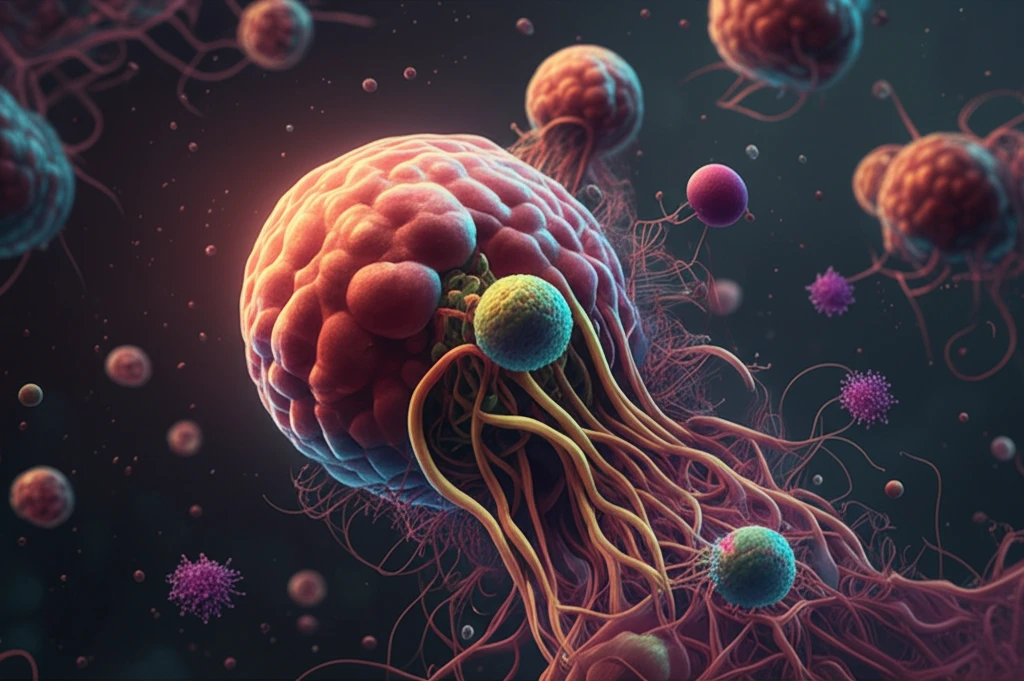
Unlocking the Secrets of Lipid Autacoids: How Cutting-Edge Research is Revolutionizing Cancer Treatment
"Discover how Dr. Dipak Panigrahy's groundbreaking work on lipid autacoids is paving the way for innovative cancer therapies, offering new hope for patients worldwide."
Cancer research is constantly evolving, with scientists exploring new avenues for treatment and prevention. Among the most promising areas of investigation is the role of lipid autacoids – naturally occurring compounds in the body – in influencing cancer development and progression. Recent studies have shed light on the potential of these molecules to revolutionize cancer therapy.
Dr. Dipak Panigrahy, a leading researcher in the field, has dedicated his career to understanding the intricate relationship between lipid autacoids and cancer. His work, spanning decades, has uncovered critical insights into how these compounds can both promote and suppress tumor growth, offering potential targets for innovative treatment strategies.
Dr. Panigrahy's journey began during his medical training, where he had the privilege of working alongside Dr. Judah Folkman, a pioneer in angiogenesis research. This early exposure sparked his interest in the complex mechanisms that govern tumor development, leading him to focus on the role of lipid autacoids.
The Power of Lipid Autacoids: EETs and Resolvins

Lipid autacoids are a diverse group of signaling molecules derived from fatty acids. They play a crucial role in regulating various physiological processes, including inflammation, immunity, and blood vessel formation. Dr. Panigrahy's research has focused on two key classes of lipid autacoids: epoxyeicosatrienoic acids (EETs) and resolvins.
- EETs stimulate angiogenesis and promote metastasis.
- Resolvins counteract inflammation and resolve it.
- Both EETs and resolvins are derived from fatty acids.
- Targeting these compounds could revolutionize cancer therapy.
A Promising Future for Cancer Therapy
Dr. Panigrahy's work has not only advanced our understanding of the role of lipid autacoids in cancer but has also paved the way for the development of novel therapeutic strategies. By targeting these molecules, researchers hope to disrupt the intricate mechanisms that fuel tumor growth and metastasis, ultimately improving patient outcomes. As research continues, the potential of lipid autacoids to revolutionize cancer treatment becomes increasingly evident, offering new hope for patients worldwide.
